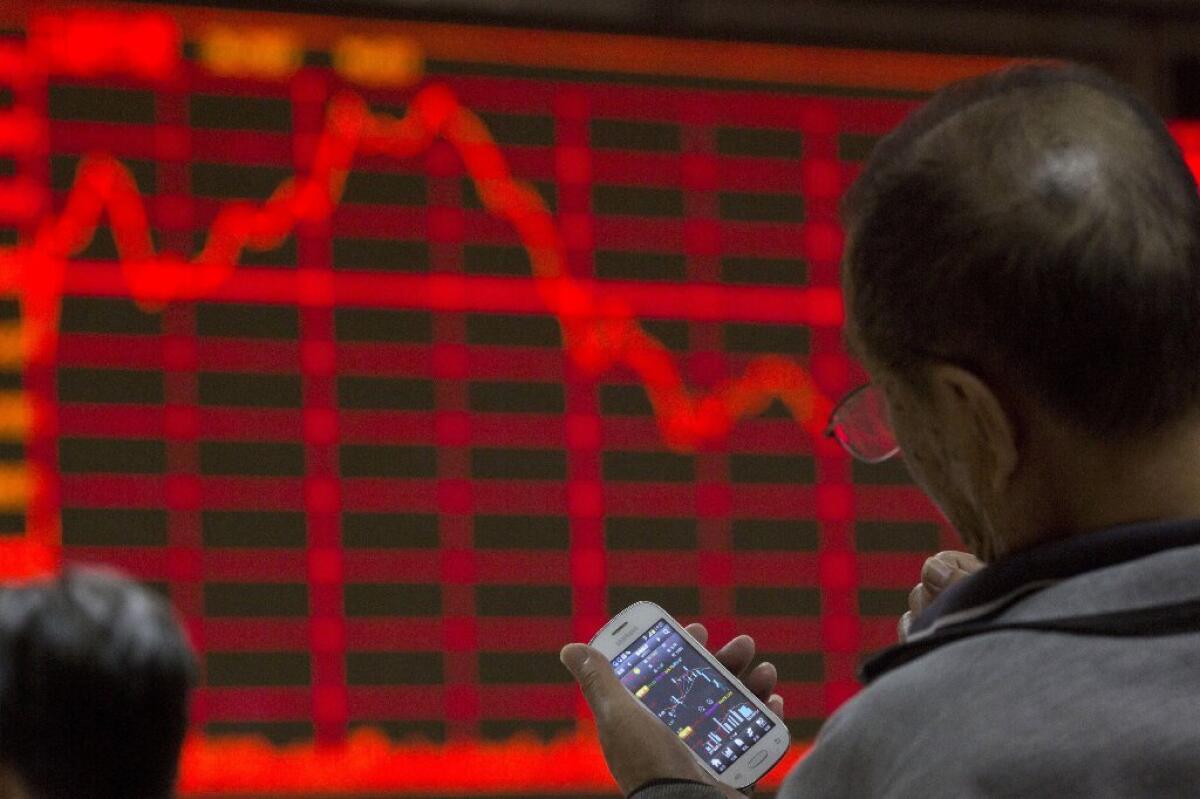Depressed? Your cellphone might be able to diagnose you

Yes, they may know you that well. New research suggests that data readily collected from our smartphone might passively, but objectively, detect depression.
- Share via
We take them to bed. We dine with them at our sides. We turn to them when we’re bored, lonely, needy or procrastinating. It should come as no surprise that our smartphones -- those faithful companions we tote through life -- could detect whether depression has settled in for a stay.
New research conducted in a small group of adults has found that the sorts of information cellphones reveal -- how much you use them, how long you use them, where you are and how much and when you move around -- could be used to detect depression in their owners.
You just have to know what to look for.
A study published Wednesday in the Journal of Medical Internet Research tracked 40 people ages 19 to 58 for two weeks. It found that, compared with people in good mental health, those with depressive symptoms are more likely to use their cellular device more frequently and for longer periods, to spend a lot of time in one place and to have a more erratic schedule of comings and goings.
Toted up, those behaviors were able to identify subjects with depressive symptoms with 87% accuracy, although the study’s very small population of subjects makes such claims very preliminary.
The study’s lead author, Northwestern University’s David Mohr, said the potential value of such research would be to offer a non-intrusive way for people at risk of developing depression to have their mental well-being monitored in a measurable and objective way. It could potentially give them -- and their families, caregivers or physicians -- early warning of a depressive episode.
Mohr, director of the Center for Behavioral Intervention Technologies at Northwestern University’s Feinberg School of Medicine, suggests that many with depression smile and gamely fumble their way through the day. But cellular devices can pick up on behaviors -- movements, phone use -- that may provide objective measurements of the social withdrawal, sleep disturbance, lethargy and lack of concentration that are hallmarks of depression.
Take daily use, for instance: The average daily use for depressed individuals was about 68 minutes, but for non-depressed individuals it was about 17 minutes. The researchers did not track how subjects used their phones, only that they were “interacting with” them.
Mohr suspects that those who spent the most time interacting with their phones weren’t so much talking to friends or family; they were surfing the Web or playing games.
“People are likely, when on their phones, to avoid thinking about things that are troubling, painful feelings or difficult relationships,” he said. “It’s an avoidance behavior we see in depression.”
Similarly, the longer periods spent at home and a small number of other familiar places suggest both lethargy and social withdrawal -- bellwethers of depression. Coming and going -- say, to work -- on a highly variable schedule may also reflect sleep disturbance or flagging motivation -- also depressive symptoms.
In addition to measuring subjects’s depressive symptoms with a standardized diagnostic inventory, the study authors devised an Android app, called Purple Robot, that stores and forwards data collected by most cellphones. They had 40 subjects download it and keep their phones charged and with them for two weeks.
Spotty data delivery winnowed the size of the study. In the end, data from just 28 of those subjects (14 of whom were judged to have depression ranging from mild to severe) were used in the analysis.
The study subjects were also asked daily to rate their mood. Assuming their scores from the standardized depression inventory was the most accurate reflection of subjects’ depression, the authors found that the smartphone data more reliably detected depression than did subjects’ answers to the daily requests to assess their mood.
In short, subjects weren’t so candid about whether they were depressed. But their cellphones knew.
Far larger populations will be needed to refine a phone-based early-warning system for depression. But Mohr and his coauthors are already interested in exploring whether the depressive behaviors detected by cellphones could offer a guide to turning negative emotional states around as well.
“We will see if we can reduce symptoms of depression by encouraging people to visit more locations throughout the day, have a more regular routine, spend more time in a variety of places or reduce mobile phone use,” said Sohrob Saeb, a postdoctoral fellow and computer scientist in preventive medicine at Feinberg.
Follow me on Twitter @LATMelissaHealy and “like” Los Angeles Times Science & Health on Facebook.





